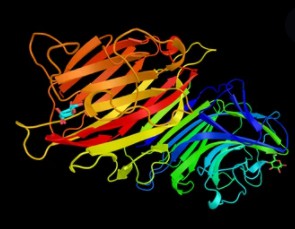
- Home
- PTMs Proteomics
- Peptide Enrichment for MS-Based Analysis
- Enrichment of Modified Peptides Using Multilectin Affinity Chromatography (M-LAC)

Lectin affinity chromatography (LAC) is an effective method in glycopeptide enrichment. As a leading custom service provider of post-translational modification (PTM) analysis, Creative Proteomics provides a broad range of modified peptide enrichment strategies, including LAC. We have developed multi-lectin affinity chromatography (M-LAC) for enriching and analyzing glycoproteins from various complex samples. Our services are flexible and customized, designed to provide the best fit for the diverse needs of our clients.
LAC generally refers to enrichment with lectins and has been extensively used for the enrichment of glycopeptides. Lectins are glycoproteins with a high affinity for carbohydrates ( sugar moieties in glycoproteins). These glycoproteins are able to distinguish between glycan structures and have varying degrees of specificity for glycans as well as their modified substrates. There are hundreds of lectins used in glycoproteomics studies, among which the commonly used lectins are wheat germ agglutinin (WGA), concanavalin A (ConA), ricinus communis agglutinin (RCA), Sambucus nigra, and more. The combinations of multiple lectins are applied to enrich different types of glycoproteins or glycopeptides from the same sample, namely, M-LAC.
While LAC is a direct method for enriching glycopeptides, it is not a comprehensive enrichment technique due to the narrow specificity of specific lectins. Therefore, we provide an M-LAC strategy for glycopeptide enrichment. M-LAC has been coupled with depletion and additional separation to enrich glycoproteins and glycopeptides, enabling a deep coverage of the glycosylation by Liquid chromatography-mass spectrometry (LC-MS/MS). Our service optimizes the fractionation step after enrichment to minimize workflow turnaround time. Our team of experts is working on a broader range of M-LAC enrichment strategies to improve glycosylation analysis.

Appropriate enrichment strategies will complement the developments in MS-based PTM analysis. Creative Proteomics is a leading contract research organization (CRO) with extensive experience in protein PTM analysis. We are dedicated to achieving the experimental large-scale characterization and quantitative analysis of modified proteins using high affinity antibody enrichment combined with LC-MS-MS identification. We insist on continuous optimization in our delivery process and service standards, which can guarantee an efficient service process and the accuracy and stability of the final delivered results. If you are interested in our services, do not hesitate to contact us. We will provide you with strong technical support to save your heart and effort.
References
Our products and services are for research use only.